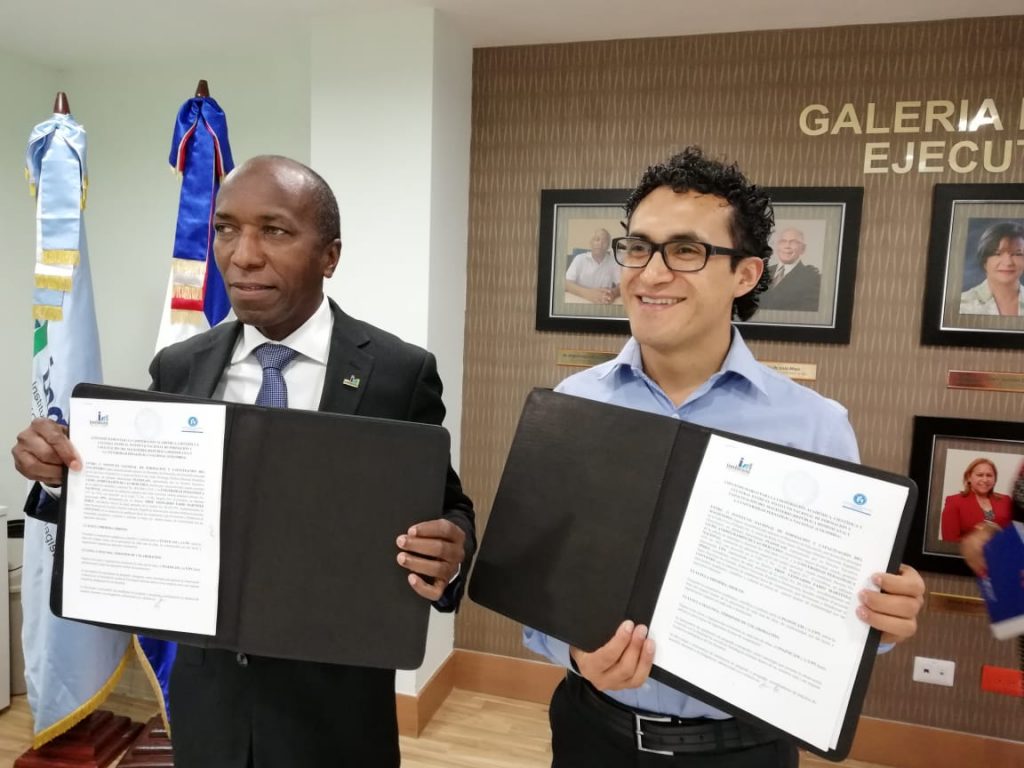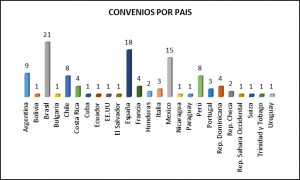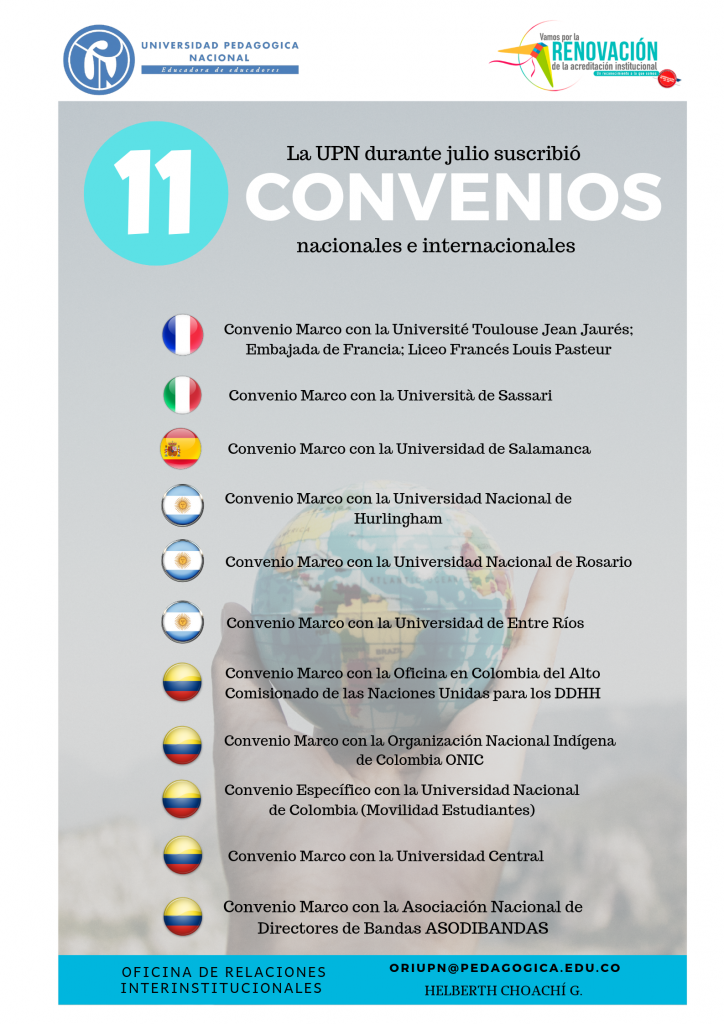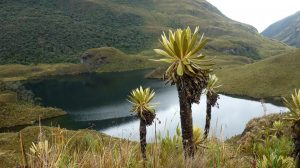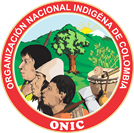| 435 | 2024 | 001 de 2024 | Alianza Fronteriza de Filantropía EEUU - México | Específico | Internacional | México | 12-12-2024 |  |
| 266 | 2020 | 01 de 2020 | Universidad del Rosario - Cátedra UNESCO | Marco | Nacional | Colombia | 17-01-2025 |  |
| 267 | 2020 | 01 de 2020 | Universidad Federal de Bahía | Específico | Internacional | Brasil | 21-01-2025 |  |
| 300 | 2021 | 01 de 2021 | Universidad de Nantes | Marco | Internacional | Francia | 10-02-2026 |  |
| 337 | 2022 | 01 de 2022 | Instituto Federal de Rio Grande del Norte | Marco | Internacional | Brasil | 28-01-2027 |  |
| 344 | 2022 | 01 de 2022 | Universidad del Valle | Específico | Nacional | Colombia | 24-06-2026 |  |
| 373 | 2023 | 01 de 2023 | Escuela Normal Superior de Villavicencio | Marco | Nacional | Colombia | 19-01-2028 |  |
| 418 | 2024 | 01 de 2024 | Universidad del Valle de Tuquari - UNIVATES | Específico | Internacional | Brasil | 19-01-2029 |  |
| 420 | 2024 | 01 de 2024 | Conservatorio del Tolima | Marco | Nacional | Colombia | 19-01-2029 |  |
| 216 | 1990 | 011 de 1985 | Universidad Nacional de Colombia | Marco | Nacional | Colombia | 16-04-2025 |  |
| 315 | 2021 | 011 de 2021 | Universidad Nacional Autónoma de Honduras | Marco | Internacional | Honduras | 31-08-2025 |  |
| 316 | 2021 | 012 de 2021 | Instituto Municipal de Cultura y Turismo de Tenjo | Marco | Nacional | Colombia | 07-09-2023 |  |
| 317 | 2021 | 013 de 2021 | Universidad de Vic - Universidad de Catalunya | Marco | Internacional | España | 08-09-2026 |  |
| 318 | 2021 | 014 de 2021 | Instituto de Filosofía y Academia Checa de Ciencias | Marco | Internacional | República Checa | 13-09-2026 |  |
| 319 | 2021 | 015 de 2021 | Escuela Normal Superior de Pitalito | Marco | Nacional | Colombia | 21-09-2026 |  |
| 320 | 2021 | 016 de 2021 | Universidad del Valle | Marco | Nacional | Colombia | 21-09-2026 |  |
| 322 | 2021 | 017 de 2021 | Universidad del Estado de Bahía | Marco | Internacional | Brasil | 10-10-2026 |  |
| 213 | 2019 | 02 de 2019 | Universidad Nacional de Colombia | Específico | Nacional | Colombia | 15-07-2029 |  |
| 268 | 2020 | 02 de 2020 | Asociación Distrital de Educadores | Marco | Nacional | Colombia | 25-02-2025 |  |
| 302 | 2021 | 02 de 2021 | Universidad de Carolina | Marco | Internacional | República Checa | 29-04-2026 |  |
| 308 | 2021 | 02 de 2021 | Universidad de Nantes | Específico | Internacional | Francia | 05-07-2021 |  |
| 358 | 2022 | 02 de 2022 | Centro de Pensamiento y Diálogo Político | Marco | Nacional | Colombia | 18-08-2027 |  |
| 364 | 2022 | 02 de 2022 | Universidad Autónoma de Madrid | Específico | Internacional | España | 31-12-2022 |  |
| 374 | 2023 | 02 de 2023 | Universidad de los Lagos | Marco | Internacional | Chile | 19-01-2028 |  |
| 421 | 2024 | 02 de 2024 | Institución Universitaria Bellas Artes y Ciencias de Bolivar UNIBAC | Marco | Nacional | Colombia | 23-01-2029 |  |
| 424 | 2024 | 02 de 2024 | Universidad Distrital Francisco José de Caldas | Específico | Nacional | Colombia | 26-01-2029 |  |
| 385 | 2010 | 025 de 2010 | Universidad de San Buenaventura Seccional Cali | Marco | Nacional | Colombia | 15-07-2027 |  |
| 270 | 2020 | 03 de 2020 | Universidad del Oeste de Santa Catarina | Marco | Internacional | Brasil | 28-02-2025 |  |
| 286 | 2020 | 03 de 2020 | Universidad de Toulouse Jean Jaurés INSPE | Específico | Internacional | Francia | 25-08-2025 |  |
| 303 | 2021 | 03 de 2021 | Universidad Científica de Lima | Marco | Internacional | Perú | 31-05-2026 |  |
| 313 | 2021 | 03 de 2021 | Universidad de Nantes | Específico | Internacional | Francia | 27-07-2026 |  |
| 345 | 2022 | 03 de 2022 | Universidad Estadual de Ponta Grossa | Marco | Internacional | Brasil | 24-08-2027 |  |
| 365 | 2022 | 03 de 2022 | Universidad de Minas Gerais | Específico | Internacional | Brasil | 16-09-2027 |  |
| 375 | 2023 | 03 de 2023 | Unidad Administrativa Especial de Gestión de Tierras Despojadas | Marco | Nacional | Colombia | 02-02-2028 |  |
| 425 | 2024 | 03 de 2024 | Universidad del Bosque | Marco | Nacional | Colombia | 30-11--0001 |  |
| 426 | 2024 | 03 de 2024 | Universidad del Estado de Bahía | Específico | Internacional | Brasil | 02-02-2029 |  |
| 269 | 2020 | 04 de 2020 | Universidad Pedagógica Nacional | Marco | Internacional | México | 28-02-2025 |  |
| 304 | 2021 | 04 de 2021 | Universidad Federal de Río de Janeiro | Marco | Internacional | Brasil | 08-04-2025 |  |
| 346 | 2022 | 04 de 2022 | Universidad Regional Integrada del Alto Uruguai y dos Misiones | Marco | Internacional | Brasil | 24-08-2025 |  |
| 357 | 2022 | 04 de 2022 | Universidad de Colima | Específico | Internacional | México | 04-10-2027 |  |
| 376 | 2023 | 04 de 2023 | Universidad Federal de Pará | Marco | Internacional | Brasil | 03-02-2028 |  |
| 450 | 2023 | 04 de 2023 | Ministerio de Economía y Finanzas - BECAL | Específico | Internacional | Paraguay | 11-09-2025 |  |
| 427 | 2024 | 04 de 2024 | Universidad Regional del Noroeste del Estado de Rio Grande do Sul UNIJUI | Marco | Internacional | Brasil | 30-01-2029 |  |
| 16 | 2016 | 05 de 2016 | Universidad del Cauca | Específico | Nacional | Colombia | 07-12-2021 |  |
| 277 | 2019 | 05 de 2019 | Comisión para el Esclarecimiento de la Verdad, La Convivencia y la no Repetición | Específico | Nacional | Colombia | 14-05-2024 |  |
| 287 | 2020 | 05 de 2020 | Universidad Metropolitana de Ciencias de la Educación UMCE | Específico | Internacional | Chile | 31-08-2024 |  |
| 341 | 2020 | 05 de 2020 | Asociación Red de Mujeres Victimas y Profesionales | Marco | Nacional | Colombia | 17-06-2025 |  |
| 305 | 2021 | 05 de 2021 | Asociación Colombiana de Geólogos y Geofísicos del Petróleo | Marco | Nacional | Colombia | 23-06-2026 |  |
| 348 | 2022 | 05 de 2022 | Universidad de Colíma | Marco | Internacional | México | 07-09-2027 |  |
| 360 | 2022 | 05 de 2022 | Instituto Federal de Rio Grande do Norte | Específico | Internacional | Brasil | 28-01-2027 |  |
| 377 | 2023 | 05 de 2023 | Defensoría del Pueblo de Colombia | Marco | Nacional | Colombia | 08-02-2028 |  |
| 387 | 2023 | 05 de 2023 | Universidad Estadual de Santa Cruz | Específico | Internacional | Brasil | 08-11-2027 |  |
| 428 | 2024 | 05 de 2024 | Escuela Normal Superior de Mompox | Marco | Nacional | Colombia | 21-02-2029 |  |
| 299 | 2021 | 052 de 2021 | Instituto para la Investigación Educativa y el Desarrollo Pedagógico IDEP | Marco | Nacional | Colombia | 29-04-2025 |  |
| 280 | 2019 | 06 de 2020 | Escuela Normal Superior de Gigante | Marco | Nacional | Colombia | 27-05-2025 |  |
| 306 | 2021 | 06 de 2021 | Embajada de Haití en Colombia | Marco | Nacional | Colombia | 24-06-2026 |  |
| 349 | 2022 | 06 de 2022 | Escuela Normal Superior Cruz de Mayo | Marco | Nacional | Colombia | 08-09-2027 |  |
| 388 | 2023 | 06 de 2023 | Secretaría de Educación de Zacatecas | Marco | Internacional | México | 16-02-2028 |  |
| 429 | 2024 | 06 de 2024 | Escuela Normal Superior María Auxiliadora de Soacha | Marco | Nacional | Colombia | 26-02-2029 |  |
| 443 | 2024 | 06 de 2024 | Universidad Clermont Auverneg | Específico | Internacional | Francia | 28-05-2029 |  |
| 294 | 2020 | 07 de 2020 | Asociación de Autoridades Tradicionales Indígenas Awa Camawuari | Marco | Nacional | Colombia | 07-07-2025 |  |
| 307 | 2021 | 07 de 2021 | Universidad de Valladolid | Marco | Internacional | España | 25-06-2026 |  |
| 350 | 2022 | 07 de 2022 | Escuela Normal Superior de Nocaima | Marco | Nacional | Colombia | 12-09-2027 |  |
| 390 | 2023 | 07 de 2023 | Asociación de Amigos de Bibliotecas, la Cultura y la Educación BIBLIOAMIGOS | Marco | Nacional | Colombia | 22-03-2024 |  |
| 430 | 2024 | 07 de 2024 | Escuela Normal Superior de Monterrey | Marco | Nacional | Colombia | 01-03-2027 |  |
| 293 | 2020 | 08 de 2020 | Universidad Tecnológica de Pereira UTP | Marco | Nacional | Colombia | 19-08-2025 |  |
| 309 | 2021 | 08 de 2021 | Universidad Estadual de Feira Santana | Marco | Internacional | Brasil | 28-06-2026 |  |
| 351 | 2022 | 08 de 2022 | Universidad Nacional de Jujuy | Marco | Internacional | Argentina | 21-09-2027 |  |
| 431 | 2024 | 08 de 2024 | Escuela Normal Superior Distrital María Motessori | Marco | Nacional | Colombia | 07-03-2029 |  |
| 323 | 2014 | 09 de 2014 | The Unversity of the West Indies | Marco | Internacional | Trinidad y Tobago | 15-12-2023 |  |
| 42 | 2017 | 09 de 2017 | Universidad de Antofagasta | Marco | Internacional | Chile | 04-05-2027 |  |
| 291 | 2020 | 09 de 2020 | Asociación Cristiana Menonita para Justicia, Paz y Acción no Violenta JUSTAPAZ | Marco | Nacional | Colombia | 18-09-2025 |  |
| 310 | 2021 | 09 de 2021 | Universidad de Cundinamarca | Marco | Nacional | Colombia | 27-07-2026 |  |
| 353 | 2022 | 09 de 2022 | Universidad Federal de Pelotas | Marco | Internacional | Brasil | 29-09-2027 |  |
| 391 | 2023 | 09 de 2023 | Fundación ENACTUS Colombia | Marco | Nacional | Colombia | 20-03-2026 |  |
| 432 | 2024 | 09 de 2024 | Comité Olímpico Colombiano | Marco | Nacional | Colombia | 08-03-2029 |  |
| 292 | 2020 | 10 de 2020 | Corporación Creer en la Paz CENPAZ | Marco | Nacional | Colombia | 29-10-2025 |  |
| 311 | 2021 | 10 de 2021 | Universidad Intercultural del Estado de Hidalgo | Marco | Internacional | México | 13-08-2026 |  |
| 354 | 2022 | 10 de 2022 | Universidad de Sevilla | Marco | Internacional | España | 03-10-2026 |  |
| 392 | 2023 | 10 de 2023 | REDUCAR | Marco | Internacional | Ecuador | 23-04-2028 |  |
| 396 | 2023 | 10 de 2023 | Universidad de Antioquia | Específico | Nacional | Colombia | 23-05-2028 |  |
| 433 | 2024 | 10 de 2024 | Escuela Normal Superior de Cartagena de Indias | Marco | Nacional | Colombia | 08-03-2029 |  |
| 379 | 2020 | 11 de 2020 | Centro de Estudios Latinoamericanos de Educación Exclusiva CELEI | Marco | Internacional | Chile | 19-11-2025 |  |
| 355 | 2022 | 11 de 2022 | Universidad Popular Autónoma del Estado de Puebla | Marco | Internacional | México | 04-10-2027 |  |
| 394 | 2023 | 11 de 2023 | Escuela Nacional Superior de Arte Dramático Guillermo Ugarte Chamorro ENSAD | Marco | Internacional | Perú | 28-05-2028 |  |
| 398 | 2023 | 11 de 2023 | Sistema Universitario Estatal SUE Distrito Capital | Específico | Nacional | Colombia | 14-07-2025 |  |
| 437 | 2024 | 11 de 2024 | Universidad Estatal de mato Grosso do Sul | Marco | Internacional | Brasil | 03-04-2029 |  |
| 312 | 2016 | 12 de 2016 | Universidad del Cauca - Prorroga | Marco | Nacional | Colombia | 02-08-2026 |  |
| 342 | 2017 | 12 de 2017 | Universidad Distrital Francisco José de Caldas | Marco | Nacional | Colombia | 04-05-2026 |  |
| 295 | 2020 | 12 de 2020 | Universidad de la República | Marco | Internacional | Uruguay | 25-11-2020 |  |
| 356 | 2022 | 12 de 2022 | Instituto Dominicano de Evaluación e Investigación de la Calidad Educativa | Marco | Internacional | República Dominicana | 04-10-2025 |  |
| 395 | 2023 | 12 de 2023 | Alcaldía Municipal de Subachoque | Marco | Nacional | Colombia | 11-05-2028 |  |
| 438 | 2024 | 12 de 2024 | Municipios Tequendama Cundinamarca | Marco | Nacional | Colombia | 12-04-2029 |  |
| 399 | 2001 | 124 de 2001 | Universidad de la Serena | Marco | Internacional | Chile | 30-03-2026 |  |
| 296 | 2020 | 13 de 2020 | Cooperativa del Magisterio CODEMA | Marco | Nacional | Colombia | 10-12-2025 |  |
| 359 | 2022 | 13 de 2022 | Universidad Pablo Olavide de Sevilla | Marco | Internacional | España | 10-10-2027 |  |
| 184 | 2023 | 13 de 2023 | Universidad de Querétaro | Marco | Internacional | México | 06-06-2023 |  |
| 439 | 2024 | 13 de 2024 | Instituto Nacional para Sordos | Marco | Nacional | Colombia | 17-04-2026 |  |
| 384 | 1999 | 133 de 1999 | Universidad Metropolitana de Ciencias de la Educación | Marco | Internacional | Chile | 04-08-2027 |  |
| 368 | 2015 | 14 de 2015 | Instituto Superior de Formación Docente Salomé Ureña | Marco | Internacional | República Dominicana | 06-10-2025 |  |
| 297 | 2020 | 14 de 2020 | Universidad del Bosque | Marco | Nacional | Colombia | 10-12-2023 |  |
| 361 | 2022 | 14 de 2022 | Universidad de Playa Ancha de Ciencias de la Educación | Marco | Internacional | Chile | 14-10-2027 |  |
| 397 | 2023 | 14 de 2023 | Fundación Universitaria Monserrate | Marco | Nacional | Colombia | 14-07-2028 |  |
| 440 | 2024 | 14 de 2024 | Fondo de Cultura Económica SAS | Marco | Nacional | Colombia | 26-04-2026 |  |
| 362 | 2022 | 15 de 2022 | Cooperativa Editorial Magisterio | Marco | Nacional | Colombia | 03-11-2027 |  |
| 404 | 2023 | 15 de 2023 | Universidad Federal de Mato Grosso do Sul | Específico | Internacional | Brasil | 28-01-2027 |  |
| 446 | 2024 | 15 de 2024 | Escuela Normal Superior Inmaculada de Guapi | Marco | Nacional | Colombia | 26-04-2029 |  |
| 378 | 2022 | 16 de 2022 | Universidad Estadual de Santa Cruz | Marco | Internacional | Brasil | 08-11-2027 |  |
| 400 | 2023 | 16 de 2023 | Universidad Femenina del sagrado Corazón | Marco | Internacional | Perú | 15-08-2026 |  |
| 405 | 2023 | 16 de 2023 | Universidad de León | Específico | Internacional | España | 05-09-2027 |  |
| 447 | 2024 | 16 de 2024 | Fundación Universitaria Empresarial UNIEMPRESARIAL | Marco | Nacional | Colombia | 26-04-2029 |  |
| 366 | 2022 | 17 de 2022 | Universidad Autónoma Metropolitana | Marco | Internacional | México | 15-11-2027 |  |
| 401 | 2023 | 17 de 2023 | Universidad Manuela Beltrán | Marco | Nacional | Colombia | 23-08-2028 |  |
| 406 | 2023 | 17 de 2023 | Secretaría de Educación de Zacatecas | Específico | Internacional | México | 06-09-2028 |  |
| 448 | 2024 | 17 de 2024 | Escuela Normal Superior de Nuestra Señora de la Paz | Marco | Nacional | Colombia | 28-04-2029 |  |
| 298 | 2020 | 1753 de 2020 | Alcaldía Municipio de Villavicencio | Marco | Nacional | Colombia | 30-12-2026 |  |
| 204 | 2024 | 18 de 2019 | Escuela de Música Fernando Sor | Marco | Nacional | Colombia | 10-06-2029 |  |
| 325 | 2021 | 18 de 2021 | Instituto Caro y Cuervo | Marco | Nacional | Colombia | 29-10-2021 |  |
| 367 | 2022 | 18 de 2022 | Asociación Indígena AMPII CANKE | Marco | Nacional | Colombia | 21-11-2022 |  |
| 402 | 2023 | 18 de 2023 | Universidad Francisco de Paula Santander | Marco | Nacional | Colombia | 07-09-2028 |  |
| 407 | 2023 | 18 de 2023 | Universidad de O'Higgins | Específico | Internacional | Chile | 13-09-2028 |  |
| 444 | 2024 | 18 de 2024 | Escuela Normal Superior de Corozal | Marco | Nacional | Colombia | 28-04-2028 |  |
| 326 | 2021 | 19 de 2021 | Universidad de OHiggins | Marco | Internacional | Chile | 16-11-2026 |  |
| 369 | 2022 | 19 de 2022 | Asociación de Autoridades Indígenas ACAIPI | Marco | Nacional | Colombia | 24-11-2027 |  |
| 408 | 2023 | 19 de 2023 | Universidad Estadual de Maringá | Marco | Internacional | Brasil | 12-09-2028 |  |
| 442 | 2024 | 19 de 2024 | Universidad Clermont Auverneg | Marco | Internacional | Francia | 28-04-2029 |  |
| 327 | 2021 | 20 de 2021 | Fundación Cultural del Quindío FUNDANZA | Marco | Nacional | Colombia | 25-06-2024 |  |
| 370 | 2022 | 20 de 2022 | Universidad Nacional de Comhue | Marco | Internacional | Argentina | 30-11-2027 |  |
| 409 | 2023 | 20 de 2023 | Centro Ana Frank Argentina para América Latina | Marco | Internacional | Argentina | 14-09-2028 |  |
| 449 | 2014 | 20 de 2024 | Universidad del Valle del Rio dos Sinos - UNISINOS | Marco | Internacional | Brasil | 16-05-2029 |  |
| 328 | 2021 | 21 de 2021 | Universidad Autónoma de Coahuila | Marco | Internacional | México | 29-06-2024 |  |
| 67 | 2017 | 21 de 2022 | Escuela Normal Superior Sady Tobón Calle | Marco | Nacional | Colombia | 05-12-2027 |  |
| 410 | 2023 | 21 de 2023 | Universidad de la Amazonia | Marco | Nacional | Colombia | 29-09-2028 |  |
| 451 | 2024 | 21 de 2024 | Municipios Cundinamarca | Marco | Nacional | Colombia | 28-04-2028 |  |
| 13 | 2016 | 22 de 2016 | Universidad de Antioquia | Marco | Nacional | Colombia | 25-11-2026 |  |
| 329 | 2021 | 22 de 2021 | Asociación Colombiana de Comunicación Popular | Marco | Nacional | Colombia | 30-11-2026 |  |
| 371 | 2022 | 22 de 2022 | Universidad Federal de Rio Grande | Marco | Internacional | Brasil | 06-12-2027 |  |
| 411 | 2023 | 22 de 2023 | Universidad de la Salle | Marco | Nacional | Colombia | 02-10-2028 |  |
| 452 | 2024 | 22 de 2024 | Escuela Normal Superior de María Auxiliadora de Villapinzón | Marco | Nacional | Colombia | 06-06-2029 |  |
| 279 | 2019 | 2210 de 2019 | Secretaría de Educación Distrital | Marco | Nacional | Colombia | 26-06-2025 |  |
| 372 | 2022 | 23 de 2022 | Fundación Alfredo Molano Bravo | Marco | Nacional | Colombia | 12-12-2027 |  |
| 413 | 2023 | 23 de 2023 | Colegio san Jorge de Inglaterra | Marco | Nacional | Colombia | 20-11-2028 |  |
| 453 | 2024 | 23 de 2024 | Escuela Normal Superior de Florencia | Marco | Nacional | Colombia | 18-06-2029 |  |
| 331 | 2021 | 24 de 2021 | Asociación de Amigos de Bibliotecas, la Cultura y la Educación BIBLIOAMIGOS | Marco | Nacional | Colombia | 22-12-2022 |  |
| 70 | 2017 | 24 de 2022 | Escuela Normal Superior de Acacías | Marco | Nacional | Colombia | 20-12-2027 |  |
| 414 | 2023 | 24 de 2023 | Asociación Hermenéutica y Valores HV | Marco | Internacional | Colombia | 20-11-2028 |  |
| 336 | 2021 | 25 de 2021 | Universidad de Costa Rica | Marco | Internacional | Costa Rica | 23-12-2026 |  |
| 422 | 2023 | 25 de 2023 | Escuela Normal Superior La Mojana | Marco | Nacional | Colombia | 13-12-2028 |  |
| 454 | 2024 | 25 de 2024 | Gobernación del Magdalena | Marco | Nacional | Colombia | 25-06-2028 |  |
| 416 | 2023 | 26 de 2023 | Escuela Normal Superior Francisco de Paula Santander | Marco | Nacional | Colombia | 13-12-2028 |  |
| 455 | 2024 | 26 de 2024 | Universidad Nacional de la Plata | Marco | Internacional | Argentina | 27-06-2029 |  |
| 254 | 2019 | 30 de 2019 | Universidad Central | Marco | Nacional | Colombia | 30-07-2024 |  |
| 236 | 2019 | 31 de 2019 | Universidad Nacional de Rosario | Marco | Internacional | Argentina | 31-07-2024 |  |
| 256 | 2019 | 32 de 2019 | Asociación nacional de Bandas ASODIBANDAS | Marco | Nacional | Colombia | 31-07-2024 |  |
| 314 | 2019 | 33 de 2019 | Universidad del Cono Sur de las Américas | Marco | Internacional | Paraguay | 05-08-2024 |  |
| 258 | 2019 | 34 de 2019 | Corporación Colombiana Transiciones Crecer | Marco | Nacional | Colombia | 05-08-2024 |  |
| 380 | 2019 | 35 de 2019 | Fundación Camarín del Carmen | Marco | Nacional | Colombia | 08-08-2024 |  |
| 260 | 2019 | 36 de 2019 | Federación Colombiana de Educadores | Marco | Nacional | Colombia | 20-10-2024 |  |
| 121 | 2006 | 379 de 2006 | Universidad Nacional Autónoma de México | Marco | Internacional | México | 17-10-2023 |  |
| 71 | 2017 | 38 de 2017 | Escuela Normal Superior de Villavicencio | Marco | Nacional | Colombia | 19-12-2022 |  |
| 261 | 2019 | 38 de 2019 | Universidad de Lisboa | Marco | Internacional | Portugal | 15-11-2024 |  |
| 262 | 2019 | 39 de 2019 | Benemérita Universidad Autónoma de Puebla | Marco | Internacional | México | 16-12-2024 |  |
| 74 | 2018 | 39476 de 2018 | Universidad del Norte (Práctica profesional) | Marco | Nacional | Colombia | 26-01-2023 |  |
| 263 | 2019 | 40 de 2019 | Instituto Joaquín Herrera Flórez | Marco | Internacional | España | 16-12-2024 |  |
| 265 | 2019 | 41 de 2019 | Fundación Pepaso | Marco | Nacional | Colombia | 06-12-2024 |  |
